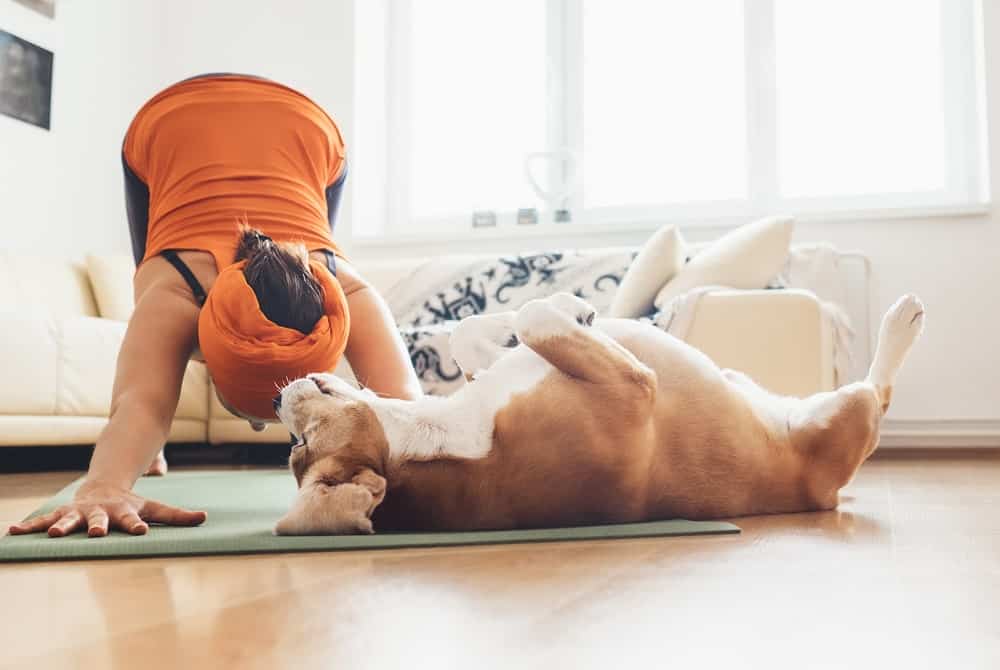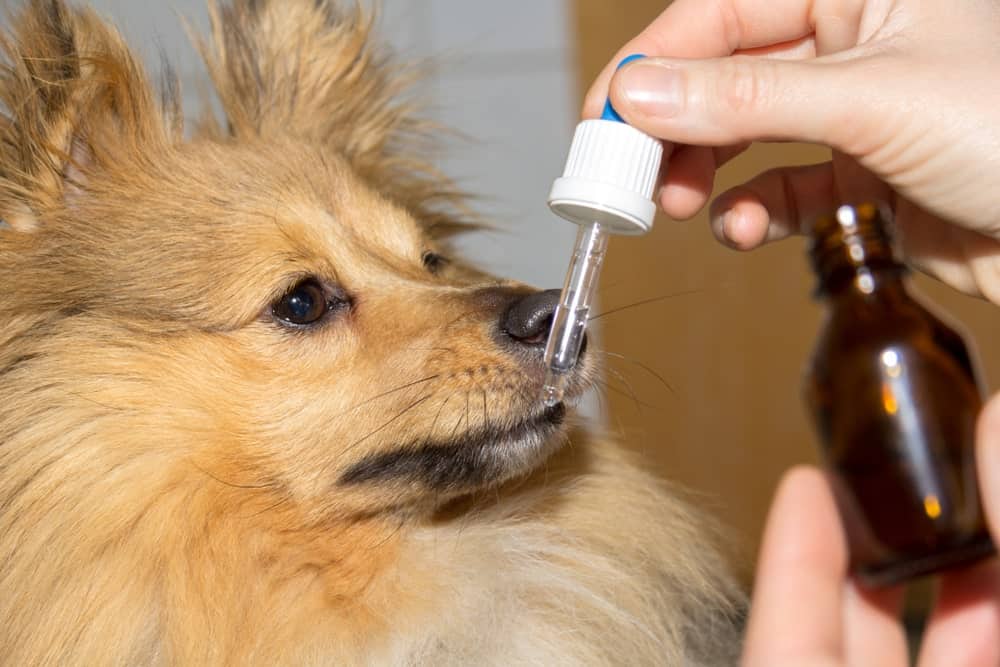“This post contains affiliate links, and I will be compensated if you make a purchase after clicking on my links.”
Emotions are a feeling that is shared by dog and dog owners alike. While all dogs can feel stress and anxiety, though, once again just like their human counterparts, the level to which the emotional strain can affect them can vary depending on each animal.
With some dogs, stress can be temporary and fleeting. However, with other dogs, anxiety can persist and, if left unchecked, can even turn into a full-blown anxiety disorder.

As humans and canines across the globe come under the unique and unsettling stress of quarantine, upset schedules, and the general fear that coronavirus has created, it’s important to address those growing palpitations within both yourself and your best friend.
Human and Dog Anxiety Tip #1: Listen to Music
Music is famous for its healing, calming properties. Humans have long sought solace in instruments and melodies as an escape from the pressures of life — and the best part is, dogs can benefit from the music, too. For instance, one study showed that listening to classical music had a significant calming effect on shelter dogs as the soothing melodies helped them calm down.
However, the same study also found that metal music had an agitating effect on the dogs, bringing up the important point that you should be careful to stick to “easy listening” music if you want both you and your pup to benefit from the concept. So get out your computer, your tablet, or your smartphone and start building a list of relaxing music to help you pass the time.
Human and Dog Anxiety Tip #2: Get Some Exercise
Exercise isn’t just good during quarantine — it’s essential. As everyone (humans and dogs alike) sit around the house, it’s easy to let the physical side of life go. Fortunately, there are quite a few ways to get both you and your dog moving again.
For instance, if you have an enclosed backyard, you can play fetch with your pup to help promote movement. When it comes to yourself, you can run around with them or you can look up an aerobics YouTube video or even download a 7-minute workout app on your phone.
You can also take your dog (and yourself) on a walk as long as you can maintain social distancing. If you live in an area where the national parks have been kept open to the public, you can even go for a hike. Just remember to take care of the normal hiking survival considerations when you do so!

Related: Quarantined? Here’s How to Exercise and Entertain Your Dog Indoors!
Human and Dog Anxiety Tip #3: Pick Up a New Hobby
If you’re feeling your stress levels rise simply from the fact that you’re cooped up and bored, it might be time to look for a new hobby for you and your dog. Consider getting your dog a new toy or finding a new hiking trail for them to explore.
For yourself, look for things that you can do along with your dog. Maybe it’s time to finally invest in that photography equipment so you can take pictures as you walk, or you could pick up a metal detector to help make your romps a bit more adventurous.
Human and Dog Anxiety Tip #4: Wrap Up
Sometimes all you need in times of stress and anxiety is a hug. If you and your pup are the only ones around, you can give your dog a hug to help them calm down. Of course, eventually, that embrace will get exhausting, and when that happens, you can feel free to shift to another “wrappable” tactic.
For humans, this can be as easy as covering up with a big, cozy blanket. For a dog, though, they may need to be formally wrapped up in a DIY dog anxiety wrap in order to help calm their jitters.
Human and Dog Anxiety Tip #5: Try CBD Oil
Finally, if you’re looking for something to simply take the edge off of those strung out emotions, consider using CBD oil — for both you and your pet. CBD oil has many excellent effects on humans, including helping to calm them down.
For dogs, the effects are similar, with many testimonials claiming that stressed-out animals were changed overnight by the introduction of CBD oil. If you do decide to go this route, make sure to start with a small dose of around 0.25 mg per day and then increase the dosage slowly from there.

Surviving and Thriving in Stressful Times
Stress is a normal part of life, and it should never be feared. In fact, trying to run away from or even completely eliminate stress can often lead to simply feeling overwhelmed by it.
Instead, it’s important for pet owners to recognize that stress can and will seep into the lives of both themselves and their pets from time to time. When that stress does appear on the scene, the best thing to do is look for ways to manage and cope with it. Only then can you expect to bring some much needed mental, physical, and emotional relief to both yourself and your canine companion.
Jori Hamilton is a writer from the pacific northwest. You can follow her on twitter @HamiltonJori and see more of her work at writerjorihamilton.contently.com.



















Michael
Apr 15, 2020 at 6:23 pm
Exercise keeps our family including the humans in a much calmer state. Great ideas to build on in the current times of the new normal. Stay Safe
Dogs Love
Apr 14, 2020 at 11:18 am
My dog lost his appetite, he is no longer eating and isolates itself, before my dog was full of energy, i think my dog is depressed i will try these natural ways to reduce my dog’s depression and anxiety, thank you so much ❤